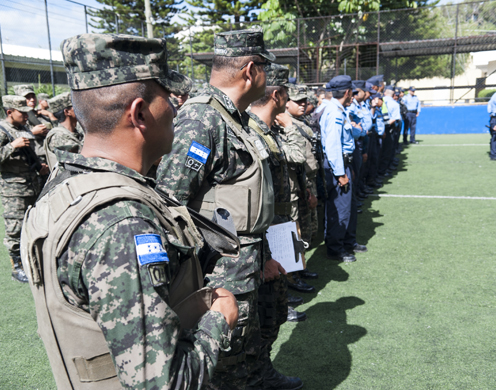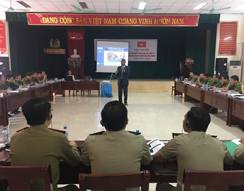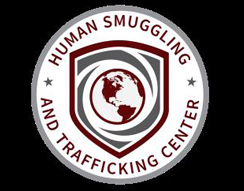ICE HSI combats modern day slavery with national and international training program
“Modern day slavery still exists,” said U.S. Immigration and Customs Enforcement (ICE) Homeland Security Investigations (HSI) Acting Section Chief, Carlos. Ortiz, “it is ‘hidden’ in plain sight.”
January is recognized as National Slavery and Human Trafficking Prevention Month but ICE HSI will be conducting anti-human trafficking training throughout 2017 and beyond. In fact, HSI has a record high 22 international and 32 domestic training events planned for 2017.
HSI works with the U.S. Department of State’s existing international law officer training programs, known as International Law Enforcement Academies, to take their human trafficking training module around the globe. Recognized as leaders on the topic, HSI personnel are the preferred source of instructors for the Department of State for these events.
Training is offered to foreign law enforcement officers, prosecutors and victim service providers in collaboration with HSI attaché offices. The training covers topics such as HSI efforts to combat human trafficking using a victim-centric strategy – including investigative techniques, bilateral investigations, indicators of human trafficking, victim identification and victim assistance with a focus on building the capacity to conduct human trafficking investigations with host country legal authorities.
HSI creates and develops tailored curriculum for two-or-five day teaching sessions at the Academies. In 2017, HSI will present in Bangkok, Thailand, Peru, Botswana, Hungary, El Salvador and Vietnam to name a few. They regularly visit countries in Europe, Central America, Africa and the Far East.
The women and men of HSI who know the victims of human trafficking understand there is no mystery to the crime. It is a crime of greed and for profit. Victims are emotionally manipulated.
The two prevalent categories of human trafficking in the United States are sex and labor. The persons who bring individuals into the United States do so by means of fraud and coercion and force labor and prostitution upon their captors.
Additionally, the victims are often conflicted and do not identify themselves as victims. They are making money to send to their families back home or pay off debts but can feel ashamed about the work they are doing. They may be able to move about freely at times but they are still beholden to their captors through threats, debt or event emotional manipulation. In some countries, there is almost a level of acceptance of the practice. There are many blurred lines between the perpetrators, the victims and profit.
Forced prostitution is a devastating reality of human trafficking.
Very young girls are not told the truth about their fate until it is too late. Once they are in the U.S. they are isolated without family, friends or resources. “Many of them end up addicted to drugs, jailed, sick and just don’t make it,” said Ortiz, “people sometimes see prostitutes as willing participants and that is not always the reality. A lot of these women have no option to get out.”
Men can be victims as well. Not all prostitutes are victims of human trafficking but many are sex slaves who are beaten and drugged in order to carry out their job duties. By law, no one under the age of 18 can consent as a sex worker.
HSI takes a victim-centered approach to their training. They prepare curriculum according to their audience. If the law enforcement officers are from a source country, they focus on how to prevent removal of potential victims from the country, if they are from a destination country, they focus on how to assist victims and introduce new laws to combat human trafficking. They speak from experience; the U.S. is a destination country.
Rob Bentall, HSI, explained how these teaching sessions benefit HSI in more ways than one: “As we get to know law enforcement officers, attachés and administration personnel from other countries and regions we are teaching, we begin to form relationships and networks that can help all of us prevent human trafficking. We are setting up an international defense mechanism against those who want to enslave human beings.”
HSI ensures all its personnel are up-to-date with human trafficking prevention training. Every HSI Special Agent in Charge (SAC) in the field has outreach and training activities annually. Bentall said, “Last year, 2016, HSI had more than 9,000 contacts with other law enforcement, non-governmental and community organizations concerning human trafficking within the United States.”
HSI is also committed to the DHS Blue Campaign and provides continued support as part of the human trafficking outreach activities when needed.
“HSI's victim assistance specialists go out into the field and participate in task forces, give outreach and provides support to human trafficking victims when needed,” said John Pipkins, HSI.
HSI takes an active role in analyzing human trafficking data and intelligence as part of the Human Smuggling and Trafficking Center (HSTC). The HSTC is an interagency fusion center and information clearinghouse focused on advancing and supporting efforts to combat human trafficking with a nexus to the United States.
When asked what the average American can do to fight human trafficking, Acting Section Chief Ortiz said the following: “Keep your eyes open. If you see something suspicious or alarming, call the HSI Tip Line or the National Human Trafficking Hotline immediately and provide as much information as possible. We need your help.”
If you would like to report suspicious criminal activity, please call the HSI Tip Line at 1-866-DHS-2-ICE (866-347-2423) (from U.S. and Canada), Call 802-872-6199 (from other locations around the globe). You may also call the National Human Trafficking Hotline at 1-888-373-7888.




